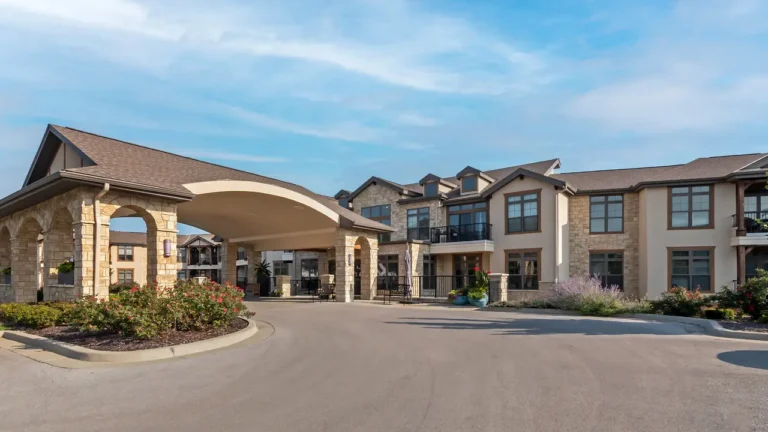Changes in normal sleep patterns are a common part of aging. Many adults report becoming sleepy earlier in the day, waking up earlier or experiencing less deep sleep during the night. This can become an issue if sleep is regularly disrupted; sleep is an important part of overall health. A good night’s sleep allows the body to repair any cell damage that occurred during the day, and it gives the immune system time to refresh. Older adults who do not sleep well are more likely to experience signs of attention and memory problems, depression and greater risk for nighttime falls.
While sleep issues are a concern for any older adult, patients with dementia or Alzheimer’s disease often have more serious problems with sleep. In fact, up to 25% of people with mild to moderate dementia, and 50% of people with severe dementia, report some form of sleep disturbances. For caregivers and family members of dementia patients, it is important to understand what sleep issues to watch for and how to help the patient manage these issues.
Common Sleep Problems
Many people with Alzheimer’s disease and dementia have problems with sleeping or may experience changes in their sleep schedule; however, it is not currently known exactly why these sleep disturbances occur. Much the same as with changes in memory and behavior, sleep changes somehow result from the impact of dementia on the patient’s brain. Sleep changes due to Alzheimer’s or dementia include:
Difficulty sleeping. Some Alzheimer’s and dementia patients wake up more often during the night and stay awake longer after waking. Brain wave studies show decreases in both dreaming and non-dreaming sleep stages. Those who cannot sleep may wander, be unable to lie still or yell or call out during these periods of sleeplessness.
Daytime napping or other shifts in the sleep-wake cycle. Seniors with dementia may feel increasingly drowsy during the day and then be unable to sleep at night. These patients may become restless or agitated in the late afternoon or early evening, an experience often referred to as “sundowning.” Experts estimate that, in late stages of Alzheimer’s, individuals spend about 40% of their time in bed at night awake and a significant part of their daytime sleeping. In some extreme cases, people may have a complete reversal of the usual daytime wakefulness and nighttime sleep pattern.
Managing Sleep Disruptions
There are many ways to support a senior with sleep disruptions and try to encourage healthy sleep habits. This type of knowledge and expertise specific to dementia patients is just one reason why many families choose a memory care community for their loved one with dementia. At Stratford Commons Memory Care Community, their Courtyard training program by Tutera Senior Living is now recognized by the Alzheimer’s Association for incorporating the evidence-based Dementia Care Practice Recommendations.
One of the main goals in managing sleep disruptions for seniors with Alzheimer’s disease or dementia is to improve the overall sleep routine, improve the sleep environment and reduce daytime napping. Here are some tips for achieving these goals for a person with Alzheimer’s:
- Avoid nicotine, caffeine and alcohol.
- Discourage watching television during periods of wakefulness. At Stratford Commons, residents have the opportunity to take part in art therapy, exercise classes and social time to keep them engaged during the day.
- Treat any pain as needed.
- If the patient takes a medication for dementia or Alzheimer’s, consult the prescribing health care provider to inquire about sleep and side effects. Some medications should not be taken before bed.
- Set the bedroom to a comfortable temperature, and set nightlights as needed.
- Encourage morning sunlight exposure. The Village at Mission Senior Living Community has beautifully maintained grounds to encourage fresh air and time outside.
- If the patient wakes during the night, discourage remaining in bed while awake. Encourage the person to only use the bed for sleep.
- Take part in daily exercise, but no later than four hours before bedtime.
- Maintain regular mealtimes, regular wake times and regular bedtimes. At The Village at Mission, restaurant-style dining is offered three times per day, serving nutritious, delicious meals to keep everyone on schedule.
Finding Support
Tutera Senior Living’s memory care communities, like The Village at Mission and Stratford Commons, are designed to support residents with respect. Our expertly trained team members are available to help residents 24 hours a day, while helping to support residents’ mental, physical and emotional needs. All memory care activities help residents to maximize their capabilities and their independence, while offering assistance as needed. With the support of our memory care experts, residents have access to therapies, socialization and fitness programs to give them the best possible quality of life.
Interested in finding a Tutera Senior Living memory care community near you? Try our location finder! And contact Tutera today with any questions about our communities and our care.







